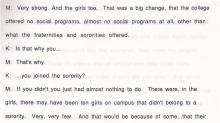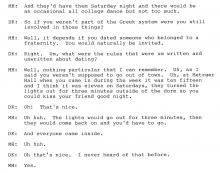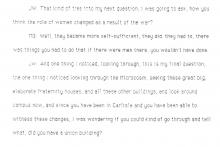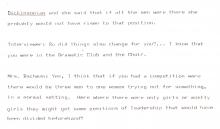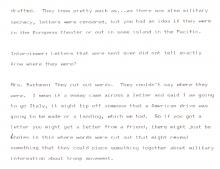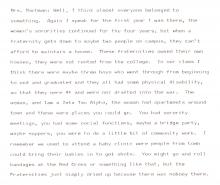Greek Life and Its Growing Presence as a Social Interaction Entity
As explained by Margaret McAdoo in her interview, due to the College's lack of a widespread social ambiance fellow Dickinsonians had to rely on the Fraternities and Sororities on campus to hold social events for their entertainment. At the time women joined sororities just for the simple reason that there was nothing else to do. According to Margaret McAdoo "there were no parties... So it was...just left up to the group of fraternities and sororities"

